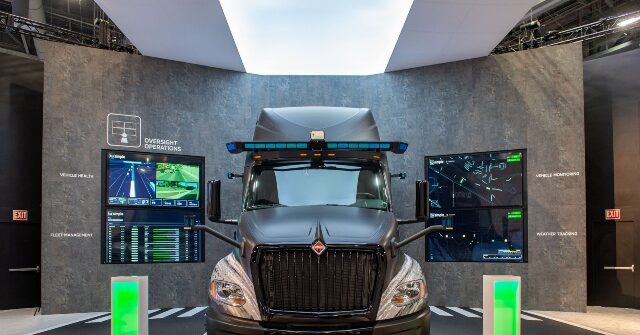Self-driving semi-truck startup TuSimple has come under scrutiny for sharing sensitive technology with Chinese companies, highlighting the challenges in protecting critical U.S. technology from foreign exploitation.
The Wall Street Journal reports that San Diego-based self-driving truck company TuSimple has found itself at the center of a controversy involving the transfer of sensitive technology to Chinese partners. The case has exposed weaknesses in U.S. laws designed to facilitate foreign investment while safeguarding American know-how, prompting a reevaluation of how the government polices companies with Chinese ties.
Founded by Chinese entrepreneurs Xiaodi Hou and Mo Chen with funding from Chinese business mogul Charles Chao, TuSimple quickly established itself as a leader in the global race to develop autonomous trucks. The company achieved a significant milestone when its truck successfully traveled 80 miles in Arizona without a human driver. However, according to hundreds of pages of previously unreported company correspondence reviewed by the Journal, TuSimple shared this technical feat and others achieved on American highways with its partners in China.
The revelations have raised concerns about the effectiveness of a national security agreement TuSimple signed with the U.S. government in February 2022. The agreement, enforced by the Committee on Foreign Investment in the U.S. (CFIUS), required TuSimple to separate its business and technology from China-based employees and partners, and to prevent the sharing of intellectual property. However, documents show that the sharing continued between the signing of the agreement and the company’s deadline to comply six months later.
While a CFIUS investigation ultimately determined that TuSimple’s tech sharing had not violated the national security agreement, the company was fined $6 million for other infractions. The case has prompted a transformation in how the U.S. polices companies with Chinese ties, with some officials now believing that the government should be more willing to block China-backed business deals outright.
The TuSimple case also influenced new Commerce Department rules issued this year prohibiting sales of internet-connected cars and their components that have ties to China, with similar rules for commercial vehicles, including heavy trucks, forthcoming.
Read more at the Wall Street Journal here.
Lucas Nolan is a reporter for Breitbart News covering issues of free speech and online censorship.
Read the full article here


